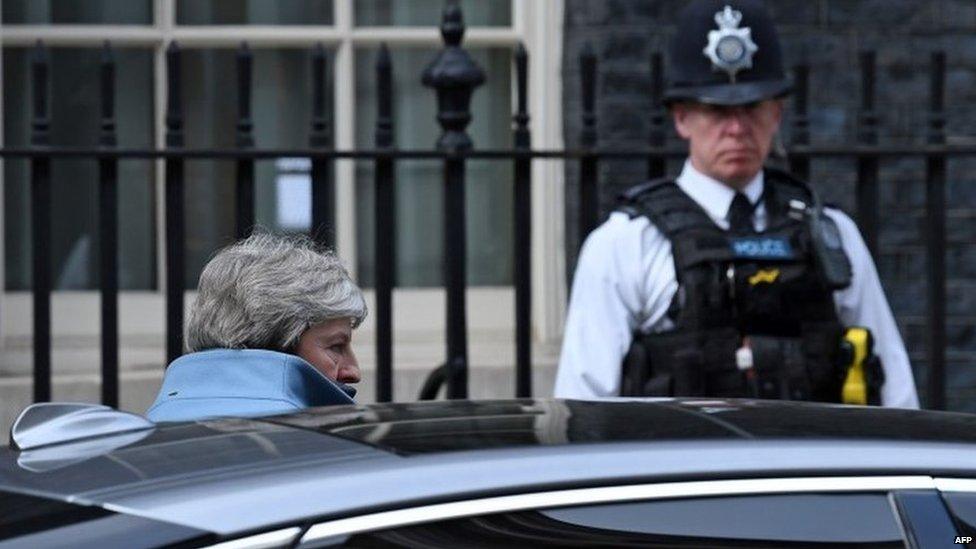Brexit: A never-ending series of question marks?
- Published

There is a very strange mood around the place in Westminster, ahead of what could be a very messy and tricky day tomorrow.
MPs will spend much of Wednesday voting on different versions of Brexit. But the government is even at odds with itself over whether they should be given free rein to do so.
One source told me 19 ministers are ready to quit if they aren't allowed to have their say which could, of course hypothetically at least, collapse the government itself.
Alistair Burt, who quit his ministerial post last night, said on the record this afternoon that there were "enough" colleagues still with their bums on government seats who might act if the prime minister was pushed to again consider no deal by the Brexiteer wing of the party.
But one member of the cabinet said this afternoon that the government would have to whip the votes tomorrow, even if they were only an indication of a way forward.
The thinking being if you don't, you make it even harder to gather up all the different factions for another run at the meaningful vote - the thumbs up or thumbs down to the prime minister's deal that she wants to bring back to Parliament as soon as possible, maybe this Thursday.
It seems right now there is disagreement in the political machine over just about every single issue, making government seem like a never-ending series of question marks.
Ministers are even wondering aloud that "no one seems to be doing anything", frustrated that Theresa May is keeping the circle around her tighter than ever before, and that's saying something.
Expectation is building that the prime minister could announce a date for her departure in a meeting with her MPs tomorrow - a final throw of the dice to try to get her deal over the line.
But one MP who has discussed it with a member of the inner circle suggests there is just no way she'll do that.
It is also still possible the prime minister will have a third go at getting her deal through the Commons this week, maybe even grabbing an unlikely victory from the jaws of defeat.
Just at a time when the country might want our politicians to be acting together, the different tribes in Westminster don't seem like they're part of the same conversation. With the prime minister strangely seeming apart from it all.
This afternoon I asked one of her close aides what she might do next - they replied "why don't you ask Oliver Letwin, he seems to have all the bright ideas".
The next 72 hours could be the moment when suddenly a conclusion snaps together. But anyone being able to pull any of this all together seems a tall order indeed.